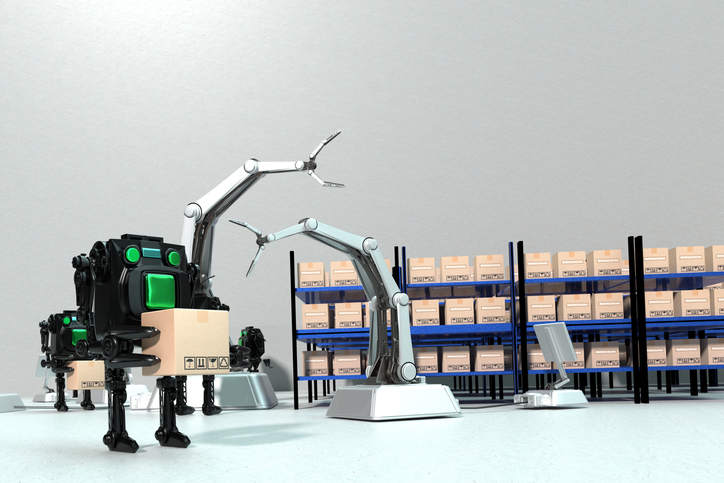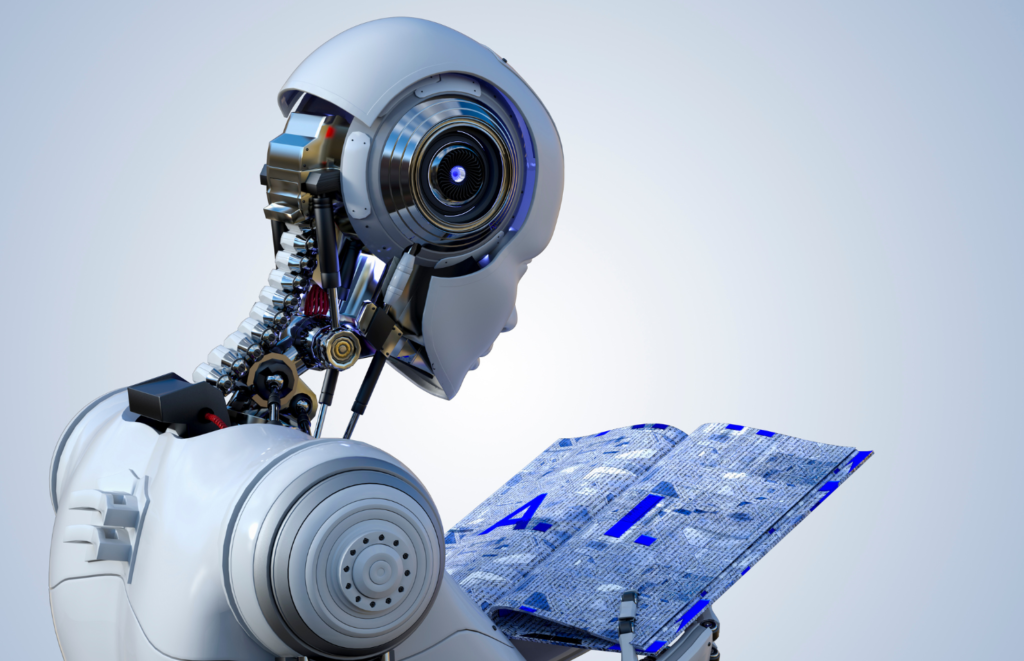Machine learning (ML) has become essential for many businesses in today’s data-driven environment. Machine learning models are critical for automating activities, generating predictions, and extracting important insights from vast datasets. When implementing ML models, organizations frequently face a basic decision: whether to invest in custom ML models suited to their needs or choose widely accessible off-the-shelf ML models.
This post will examine the benefits, constraints, use cases, and critical factors when deciding between your organization’s custom vs. off-the-shelf machine learning models in 2023.
Advantages and Limitations of Custom ML Models
Custom ML models, also known as bespoke or tailored models, are machine learning models constructed and developed to handle the unique demands and problems of a certain business or problem. These models are created from the ground up, beginning with data collection and preprocessing and progressing through feature engineering, algorithm selection, and model training. A team of data scientists, engineers, and domain specialists with a strong grasp of the business domain and data characteristics often develops custom models.
Custom ML models offer several distinct advantages, making them an attractive choice for businesses with specific needs and unique datasets. Below are some key advantages:
- Tailored to Specific Needs: Custom ML models may be built and trained to handle your company’s particular difficulties and requirements. You may create a highly specific and optimized model for your use case by utilizing your domain knowledge and skills. This modification allows you to attain improved accuracy and performance compared to off-the-shelf models.
- Flexibility and Adaptability: Custom models provide additional flexibility and adaptability as your company grows. You may change and fine-tune the model to include new data, handle changing situations, or improve performance. This versatility guarantees that your machine-learning solution stays relevant and successful in changing business situations.
- Competitive Advantage: By investing in bespoke ML models, you get a competitive advantage over rivals that rely primarily on off-the-shelf solutions. Custom models enable you to differentiate your organization by giving consumers unique insights, personalized suggestions, or tailored services. This advantage can potentially boost consumer happiness, loyalty, and market share.
Despite their advantages, custom ML models also come with certain limitations that businesses need to consider:
- Expertise and Resources: Creating bespoke ML models necessitates the collaboration of a team of professional data scientists, engineers, and domain specialists. Acquiring the requisite skills and resources may be costly for enterprises. Furthermore, the model’s constant maintenance and upgrades necessitate continued human resources and infrastructure investment.
- Data Requirements: Custom models require labeling training data that precisely reflects the target domain. Acquiring and preparing this data can be time-consuming, costly, and even difficult if your dataset is unstructured or limited. The quality and diversity of the data are critical to the model’s performance and generalization capabilities.
- Development Time: Developing a bespoke ML model is iterative and time-consuming. It necessitates experimentation with various designs, algorithms, and hyperparameters, frequently involving trial and error. Unlike installing off-the-shelf models, the development timeframe may be longer, affecting business time-to-market.
- Risk of Overfitting or Bias: Overfitting occurs when a custom ML model becomes overly fitted to the training data and fails to generalize effectively to fresh data. To assure the model’s dependability and fairness, overfitting and adequate regularization techniques, validation processes, and ethical considerations must manage bias issues.
Advantages and Limitations of Off-the-Shelf ML Models
Off-the-shelf machine learning models, also known as pre-trained or pre-built models, are ready-made machine learning models designed and trained by specialists for immediate use. These models are developed to solve frequent use cases based on vast, diversified datasets that often capture broad patterns and trends.
Off-the-shelf ML models, also known as pre-trained or pre-built models, offer several advantages that make them a popular choice for businesses. Here are some key advantages:
- Quick Deployment: Off-the-shelf models are easily accessible and may be swiftly integrated into your business systems. They save time and costs by eliminating the need for substantial model creation and training. This fast deployment enables enterprises to quickly integrate ML solutions and reap the advantages without a protracted development cycle.
- Expert Development and Training: Experts in the subject often create and train off-the-shelf models. They draw on the expertise of data scientists and researchers with specific knowledge and experience in developing successful machine-learning models. These models are frequently trained on big, heterogeneous datasets, using the collective wisdom of the data utilized in their creation.
- Cost-Efficiency: Using off-the-shelf models is cost-effective for organizations with limited funds and resources. Businesses can leverage existing models at a fraction of the cost of establishing a bespoke model. Because of its cost-effectiveness, ML is more accessible to a broader spectrum of industries and allows smaller firms to harness advanced ML capabilities.
- Rigorous Testing and Validation: The developers put off-the-shelf models through rigorous testing, assessment, and validation processes. These models are evaluated on various datasets and compared to known performance indicators. As a result, their dependability, accuracy, and generalization capabilities are well-documented, providing enterprises with assurance about their performance.
Despite these advantages, off-the-shelf ML models have certain limitations which must be addressed to help make an informed decision for your business:
- Lack of Customization: Off-the-shelf models are intended to cover common use cases and serve a variety of industries. While convenient, they may not entirely meet your organization’s unique needs. Customization possibilities are frequently restricted, making it difficult for organizations to fine-tune the model to obtain the best performance for their needs.
- Limited Domain Knowledge: Because off-the-shelf models are designed for broad use, they may miss your organization’s subtleties and domain-specific complexities. It can result in subpar performance, particularly in areas requiring specialist expertise. Businesses with specialized sector requirements may discover that off-the-shelf models fall short of the required degree of accuracy or insights.
- Intellectual Property and Ownership: Businesses must address rights and ownership using off-the-shelf models. Third-party vendors frequently build and own these models, which may result in modification, data usage, or property rights restrictions. Understanding and resolving these concerns is critical for ensuring compliance and protecting the company’s interests.
- Scalability and Adaptability: Off-the-shelf approaches may face limitations regarding scalability and adaptation to changing company demands. While they may be useful in the short term, organizations experiencing considerable development or dealing with changing datasets may require additional flexibility. Custom models are frequently more scalable and adaptable since they can be updated and fine-tuned to meet changing needs.
Use Cases and Examples
Custom ML models are extremely valuable for businesses needing domain-specific expertise and unique data patterns. On the other hand, off-the-shelf ML models find use in scenarios where quick deployment and cost-efficiency are crucial. Let’s look at the examples of each model in the Oil and Gas industry:
Custom ML Models: ExxonMobil, one of the world’s largest publicly listed oil and gas firms, has developed custom ML models for predictive maintenance. They use sensor and equipment data to predict faults and optimize maintenance plans, decreasing downtime and increasing operational efficiency.
Off-the-Shelf ML Models: Chevron, an American global oil giant, has used off-the-shelf machine learning models to control pipeline integrity. They use anomaly detection algorithms to monitor pipeline systems for unusual behavior or potential leaks, assuring the safety and dependability of their operations.
Factors to Consider When Choosing Custom vs. Off-the-Shelf ML Models
The rising competition in today’s business landscape calls for informed decisions that can help align the company’s future goals. Therefore, choosing custom vs. off-the-shelf ML models mustn’t be a hasty decision. Instead, consider the below-discussed factors when choosing the best ML solution for your business:
Uniqueness of the Business Problem
A bespoke ML model may be the best option if your business problem demands specialist expertise or solves specific problems that off-the-shelf models do not properly address. Custom models may be designed to meet your individual requirements, allowing you to capture the subtleties and complexities of your data and domain.
Off-the-shelf models can be a suitable alternative for broader use cases when the problem is well-defined and comparable to those often faced in numerous sectors. These versions are intended to serve a variety of enterprises and give a rapid solution without requiring considerable modification.
Availability of Resources
Creating bespoke machine learning models necessitates a specialized team of qualified data scientists, engineers, and domain specialists. Consider if your company has the appropriate resources, such as funding, time, and talent, to design and maintain a bespoke model. Custom models can need substantial time, talent, and infrastructure expenditures.
Because they reduce the need for considerable model creation, off-the-shelf models are a more cost-effective and time-efficient option. Professionals have already constructed and trained these models, saving firms the time and money necessary to build models from the ground up. Check if your company can swiftly adapt and integrate off-the-shelf models into your infrastructure.
Scalability and Adaptability
Custom models may improve scalability and flexibility if your company expects considerable expansion or works with changing data trends. You have greater control over the model’s design, algorithms, and updates, allowing you to optimize it as your business needs evolve.
Off-the-shelf models can be useful when quick deployment and scalability are critical. These models are built to handle various jobs and datasets, making them ideal for enterprises with predictable or somewhat steady data patterns. Consider if the scalability and adaptability afforded by off-the-shelf models are compatible with your company’s development trajectory and changing data requirements.
Control and Ownership
Custom ML models give you more power and control across the development and deployment process. You have complete control over the data utilized, the architecture of the model, and the decision-making process. This degree of control guarantees compliance with privacy standards and protects intellectual property rights. Moreover, businesses can have the control to tailor the model to the company’s unique needs.
Adopting off-the-shelf models necessitates depending on models created by third-party vendors. Think about the ramifications for control, ownership, and data usage rights. Understand the provider’s terms and conditions to verify they correspond with your company demands, privacy policies, and compliance requirements.
By carefully evaluating these criteria, businesses may decide whether to use bespoke or off-the-shelf ML models. Assessing the problem’s uniqueness, resource availability, scalability, control, and ownership will aid in determining the best method to maximize the benefits of machine learning in their specific business environment.
Conclusion
Choosing between custom vs. off-the-shelf ML models is a vital decision that depends on your company’s goals and limits. Custom models provide customized solutions and greater alignment with individual requirements but are expensive. Off-the-shelf models offer rapid deployment, low costs, and the benefit of professional development. However, they may lack the needed amount of customization.
Businesses can make an informed decision that best serves their needs and optimizes the benefits of machine learning in 2023 and beyond. To do so, you must carefully analyze the advantages, constraints, use cases, and crucial factors.
One of the steps of our Business Process AI-nization approach at Achievion is to select the proper ML architecture serving client’s unique challenges. Based on the criteria listed in this article we choose between:
- Custom Models
- Off-the-shelf Models
- Hybrid approach that starts with off-the-shelf Models and includes training them on custom data
We aim to help small and medium companies navigate today’s complex business landscape through AI. Whether AI product development or incorporating AI into business processes, we can help businesses stay ahead of the tech curve and excel in their niche.
Want AI solutions for your business? Contact us today or learn more about our services on our website.









